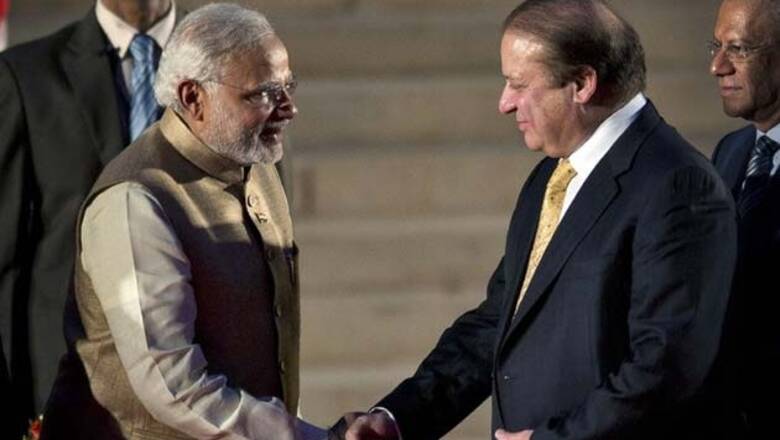
views
New Delhi: Just hours after the Pakistan High Commissioner, Abdul Basit, defended his meeting with the Kashmiri separatists, India hit back saying there were only two stakeholders on Jammu and Kashmir - India and Pakistan, asking the neighbouring country to respect past accords on truce.
"After 1972 and the signing of the Simla Agreement by the Prime Minister of India and Prime Minister of Pakistan, there are only two 'stakeholders' on the issue of Jammu and Kashmir - the Union of India and the Islamic Republic of Pakistan. This is a principle which is the bedrock of our bilateral relations. This was reaffirmed in the Lahore Declaration of 1999 between PM Nawaz Sharif and PM Vajpayee," a statement issued by the MEA said.
India also gave a tough response on why it had permitted such meetings with separatists in the past and had changed track now.
"Pakistan assured us, at the highest level, that they were committed to a peaceful dialogue on the issue of Jammu and Kashmir and would not allow Pakistan or territories under its control to be used for terrorism against us... We know now, particularly after the Mumbai terror attacks and the manner in which Pakistan has pursued subsequent investigations and trials, that this assurance had no meaning and that an approach that is different to the one laid down by the Simla Agreement and Lahore Declaration does not yield results," the statement said.
India on Monday called off its Foreign Secretary-level talks with Pakistan, scheduled to be held in the last week of August, in protest against the meetings held by Basit with Kashmiri separatists in Delhi despite a prior warning from India against it.
While Pakistan said it was disappointed and the separatists said the move was 'regrettable', the Narendra Modi government said the decision was taken after much thought.
The government had been under fire over the continuous ceasefire violations by Pakistan in the past few weeks. The Congress, however, still criticised the tough stance taken by the government. "This would pose a major security risk in the days to come," Congress leader Manish Tewari warned. He also asked why the Modi government had rushed into inviting Pakistan Prime Minister Nawaz Sharif for his swearing-in ceremony and now changed track in what Tewari called was "knee-jerk diplomacy".




















Comments
0 comment